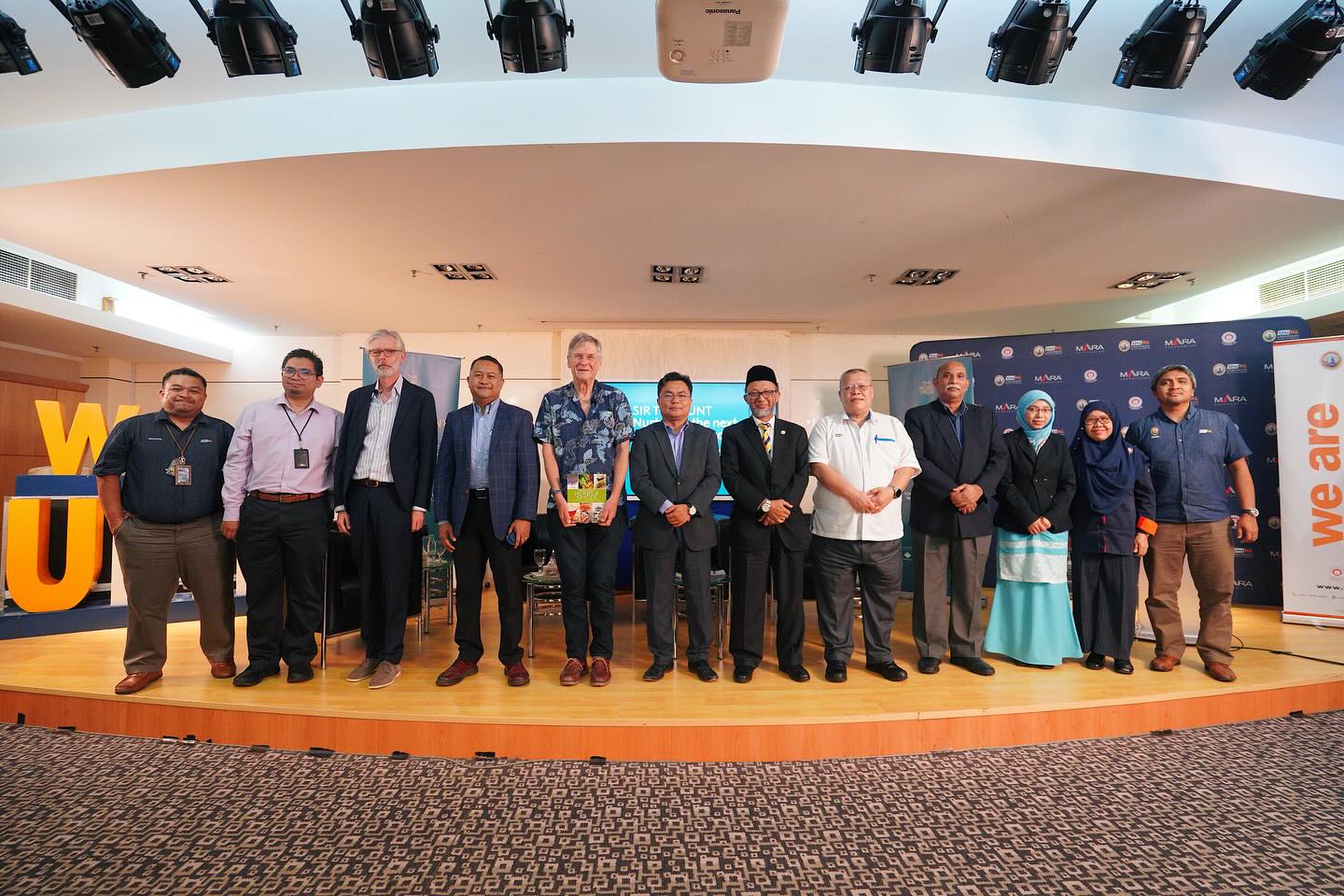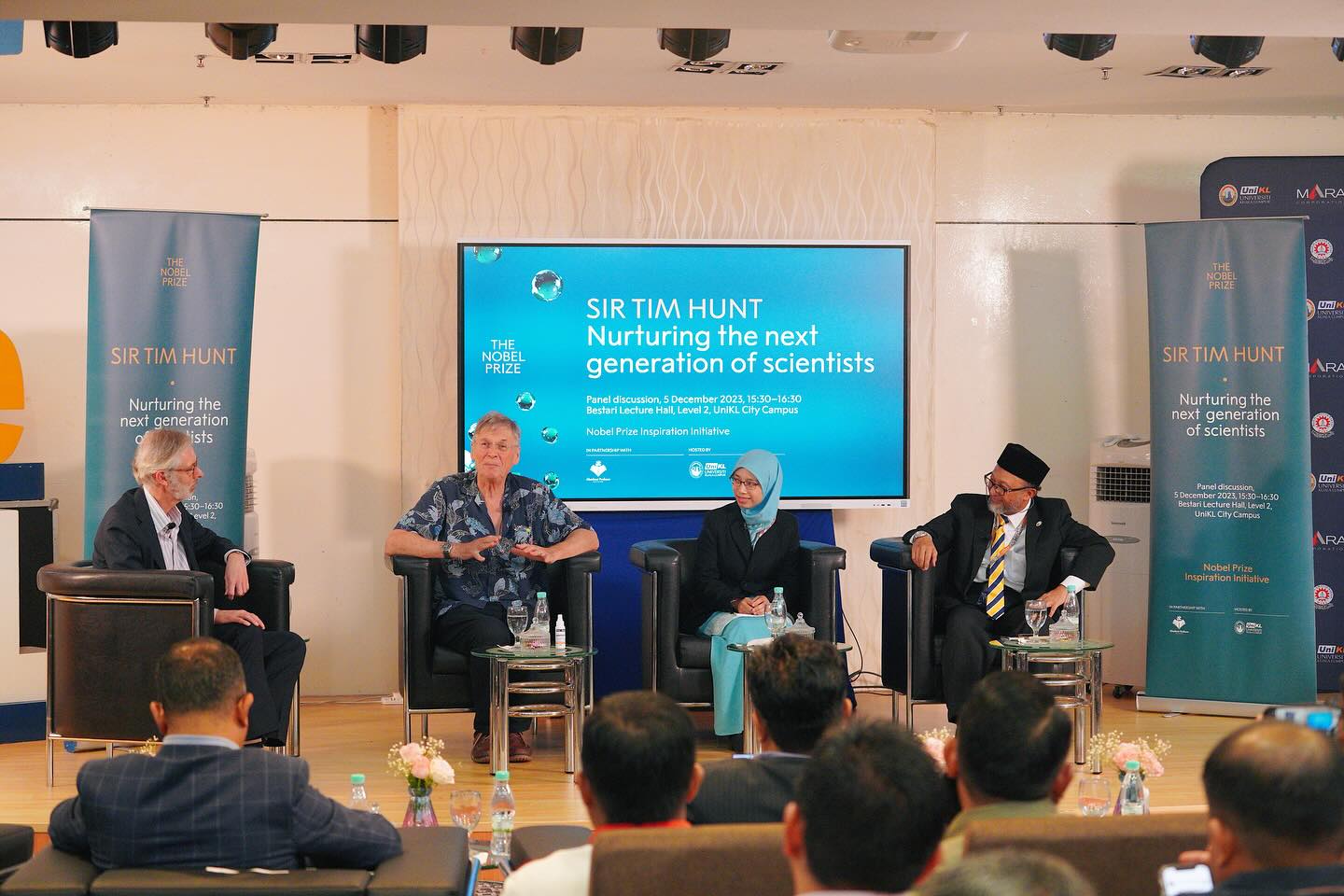Nurturing the next generation of scientists
In Malaysia, there is a growing concern over the diminishing interest among young people in pursuing careers as scientists.
Among the millennials in Malaysia, there seems to be a decline in enthusiasm for science, as indicated by the latest statistics from the Ministry of Education, revealing that less than 40 percent of students in schools are enrolled in the science stream.
If this trend is not promptly addressed, Malaysia risks becoming merely a consumer of technological advancements from other countries, potentially resulting in a negative impact on its socio-economic status.
While this issue is not unique to Malaysia and is a global phenomenon, Richard Timothy Hunt, the 2001 Nobel Prize winner in Physiology or Medicine, emphasised the importance of instilling a drive to seek answers among the younger generation to bolster their interest in science.
“I believe young people should draw inspiration from engaging in practical activities. There is a distinct advantage in focusing on practical tasks, as it fosters a more effective learning experience.
“Personally, this is how I acquired knowledge—by actively participating in practical tasks and learning from my own experiences,” stated Hunt during a panel discussion on ‘Nurturing the Next Generation of Scientists’ held at UniKL City Campus on December 5th.
Other panellists included the Dean of Faculty of Pharmacy & Health Sciences from UniKL Royal College of Medicine Perak (UniKL RCMP), Prof. Dr. Ahmad Fuad Shamsuddin; Lecturer from Faculty of Medicine, UniKL RCMP, Norain Ab. Latif and the Chief Scientific Officer of the Nobel Laureate Outreach, Adam Smith, who moderated the discussion.

Dr. Ahmad Fuad highlighted that both the scientific community and the government in Malaysia have recognised the alarming trend of fewer students opting for science in their upper secondary education, with less than 20% making this choice during lower secondary education. The situation further deteriorated during the pandemic, leading to a decline in interest.
The panel discussion, titled “Nurturing the Next Generation of Scientists,” was fitting for UniKL, a relatively young university with a primary focus on Science, Technology, Engineering, and Mathematics (STEM) and Higher Technical and Vocational Education and Training (HTVET).
The objectives of the event aimed to sustain and enhance the scientific minds of UniKL students at both undergraduate and postgraduate levels, exposing them to the ideal pathway for developing an inquisitive mind for research and scientific discovery.
The Deputy President (Academic & Technology) of UniKL, Prof. Dr. Kushsairy Abdul Kadir, stated during his officiating speech that UniKL has been tasked with addressing the decline in scientific and technological interest among the younger generation.
He highlighted the establishment of the Centre for STEM Enhancement & TVET (CSET), conducting programmes and activities to be shared with schools.
The panel discussion with a Nobel laureate was one such programme, intended to create a lasting impact on the community’s interest in science and technology.
“UniKL will continue to leverage science and technology, especially in research and postgraduate programmes, in our ongoing efforts to nurture the next generation of scientists,” he affirmed.
UNIVERSITI KUALA LUMPUR
1016, Jalan Sultan Ismail,
50250 Kuala Lumpur
+603 - 2175 4000
+603 - 2175 4001
CONNECT WITH #UniKL



